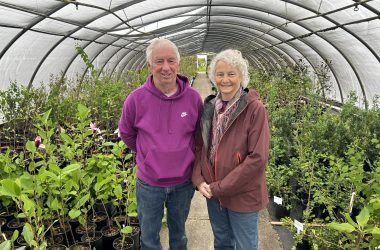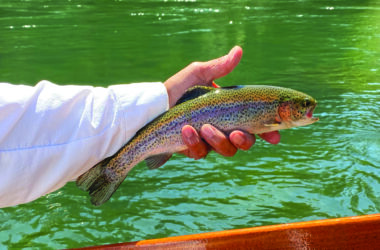“Hyper-local” is not just a saying but a business model that The Chronicle has been true to, and in my biweekly fishing report I do the best I can to highlight those hyper-local fishing locations for you. I do occasionally go off the rails, bringing you narratives of some of my fishing adventures from other very special locations in the Northwest.
So in this week’s Angler’s Log, because it is likely going to affect your opportunities to fish for salmon in Oregon this year, I need to direct your attention far to the south where the salmon we fish for, on large portions of the Oregon coast, come from rivers and hatcheries in California. Primarily they come from the Klamath and the Sacramento Rivers, including their many tributaries.
This year the media has been rich with stories of the record-setting snow and rainfall that has inundated towns and cities across the Golden State, and although the drought that has plagued California and most other Western states since about 2012 has not gone away, this year’s abundance of water, in spite hundreds of millions in damage, is generally accepted as a good thing. Groundwater resources, necessary to keep rivers and streams flowing through the dry months of each year, will take a few more years of adequate precipitation to recharge.
But in the last two years, the California drought was so bad that hatchery managers were forced to truck millions of salmon smolt all the way to the ocean because river levels were so diminished that it was highly unlikely they would survive their swim to the ocean. An important fact about salmon on the West Coast is that once they have reached their way to the Pacific Ocean, they turn right and head northward. Oregon salmon eventually reach the waters of the Bristle Bay and California salmon generally settle into the coastal waters of Oregon, Washington and southern British Columbia, where for decades they produced some of the best sport fishing for chinook salmon in the West and known for its hefty fish. Historically, beginning in March of each season, close to a million salmon would swim under the Golden Gate Bridge headed home to Sacramento, the San Joaquin and all the other tributaries that emanate from the slopes of the High Sierra mountain range. This season fisheries managers predict that only about 160,000 salmon will make that trip, and as a result have proposed closing the entire Pacific coastline, from the Mexican border to Cape Falcon on the north Oregon coast to fishing for chinook salmon. North of Cape Falcon,I expect things to be the same as previous seasons – fair to good ocean fishing for chinook, coho and other species of salmon, too.
This “proposed closure” would shut down ocean fishing for chinook from every major sport fishing port on the Oregon coastline from the Tillamook Bay to Brookings and would also suspend the very popular chinook salmon “bubble fishery” at the mouth of the Chetco River until Sept. 1. When fall chinook salmon return, Oregon’s coastal rivers will begin staging off the coast for their fall spawning migration to rivers like the Siuslaw, Umpqua and Coos. Apparently, coho numbers are strong enough that some amount of ocean fishing for the slightly smaller member of the salmon family will be allowed. So from about the Umpqua River northward those opportunities should be fair this season. South of the Coos there just aren’t that many coho available and will probably see little pressure.
My sources in the industry, although deeply disappointed, are somewhat resigned to the facts. They also see the low numbers of ocean salmon that have been available for the last several years. So most are pretty certain that when the Marine Fisheries Service meets later this month, the current proposal to close all the ocean salmon fishing from Cape Falcon south will actually go into effect. Of course, the closure will also affect commercial salmon fishing too and will likely be reflected in the price you will soon be paying at the market for a salmon filet. Most of you are probably saying, “Frank, enough with the bad news,” but let us not forget that aside from our battered salmon runs the near ocean waters along the Oregon coast are a lush and nurturing habitat for countless members of other fish and finally, it just might be the season you book your first tuna fishing experience.
Email: [email protected]








